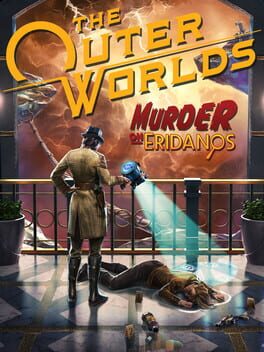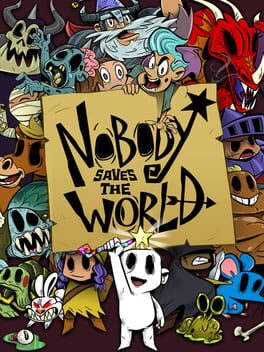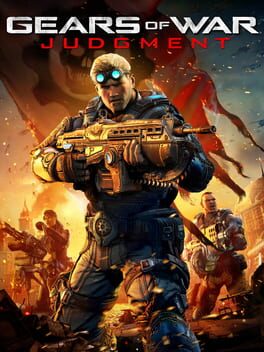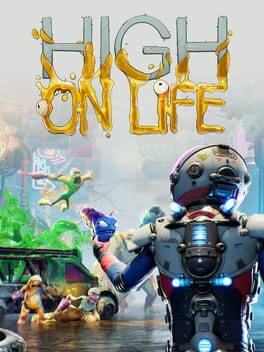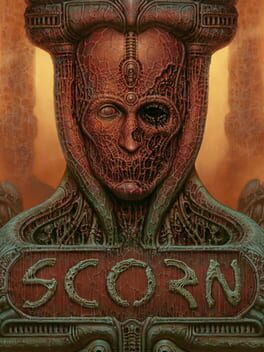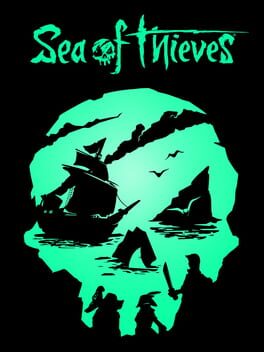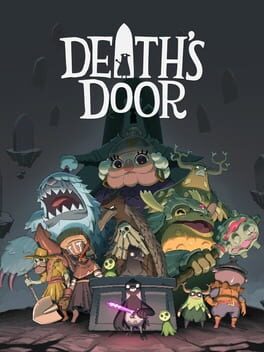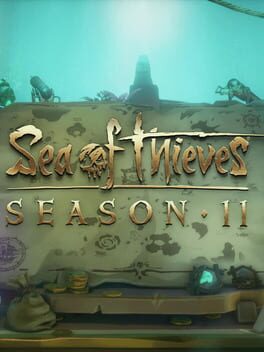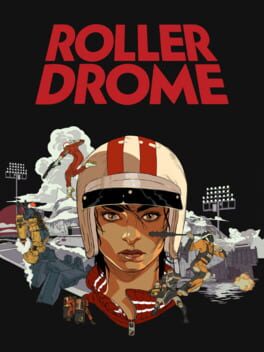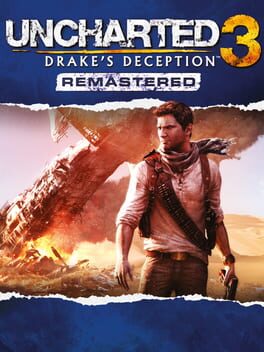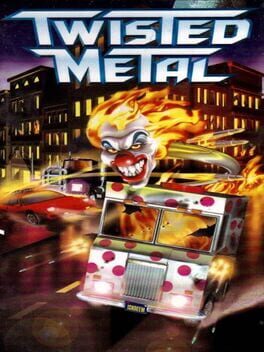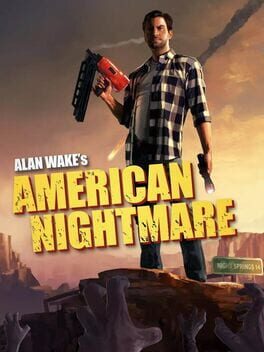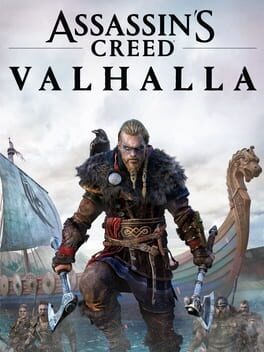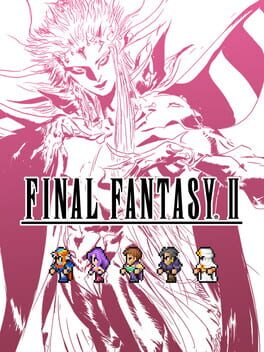ARW3
BACKER
Solid stuff, very little narrative exposition, but strong gameplay in a series of shooting galleries. There is a fun, arcade-like spin here that is novel for the Gears of War series. Judgement boasts an impressive number of stats to obsess over, should you be so inclined. Missions are lean in nature and offer bonus challenges to entertain this arcadey design further. Overall, Gears of War: Judgment's campaign is time well spent.
2023
Lies of P is both a surprising and outstanding effort. Round8 has brought forward the Bloodborne formula perfectly reimagined for 2023, with many exciting additions that distinguish it as something uniquely their own. Although level design is fairly linear, there are clever scenarios for returning to old levels. Mob design might have unfortunately taken too much homage to Bloodborne, but elsewhere Lies of P really shines. There is a great level of customization in "how" you play, with evolved gameplay mechanics including the legion arm, weapon customization, and smart build-crafting. QoL was not an afterthought, with aspects of Lies of P being infinitely more intuitive than that of most Souls games. Utilizing open-domain liberties to set this world in a dystopian version of Pinnochio was an inspired decision. The story remained intriguing and shockingly easy to follow along when compared to its fellow souls-likes. Lies of P is set to get a sequel, as has already been announced, and given the truly unpredictable ending this game treated players to... I am beyond excited to see it.
2022
Overall, High on Life is a pretty awesome game characterized largely by a constant stream of over-the-top humor that will get plenty of laughs out of most people. If you vibe with Justin Roiland's humor in Rick & Morty, you're probably gonna dig this game as well. It's a serviceable FPS platformer that is set in various, well-realized hub worlds. The bombastic art direction throughout is superb. The little details in High on Life are also fantastic - whether that be NPC dialogue, 4th wall-breaking jeers, or satirical depictions of our own society. It is readily apparent a lot of effort went into designing the bizarre setting for this title.
Performance is fine but I encountered a handful of frustrating bugs that were easily mitigated by checkpoint reloads. However, there is one prominent achievement bug that is much more obnoxious, given the setup for it requires a whole playthrough of the campaign. I am hopeful this will be patched, but I've seen no official word on the matter.
Squanch Games brought something quite unique to the table with High on Life, and I am quite keen to continue to see them make more titles outside of the VR space.
Performance is fine but I encountered a handful of frustrating bugs that were easily mitigated by checkpoint reloads. However, there is one prominent achievement bug that is much more obnoxious, given the setup for it requires a whole playthrough of the campaign. I am hopeful this will be patched, but I've seen no official word on the matter.
Squanch Games brought something quite unique to the table with High on Life, and I am quite keen to continue to see them make more titles outside of the VR space.
2022
Scorn is an unsettling outing into a dystopian alien society where the player is tasked with navigating various puzzles. Although no clear goal is spelled-out for the player, your task seemingly demands you escape the ancient structures from which you awaken.
Make no mistake, the chief appeal and greatest accomplishments of this title are found in its unique art direction. Scorn's grotesque presentation serves as an explicit ode to the works of H.R. Giger and surrealist artist Zdzisław Beksiński. The humanoid alien society in which Scorn takes place clearly draws from both their works. The parasitic plant depicted in Beksiński's 1978 "AA78" is personified by the eerie overgrowth the player must navigate as they physically descend Scorn's world. Further still, desolate landscapes and gothic cathedral-like edifices serve to evoke his many apocalyptic oil paintings. Society in Scorn appears revolved around the cyclical production and conclusion of life. Players will note the architecture they manipulate to progress will symbolically nod to the mechanical way by which society reproduced in the world of Scorn. Its biophysical and highly sexual undertones assuredly pull from H.R. Giger's various works. I imagine most players will at least have some familiarity with the original "Alien" films, and their influence on Scorn is readily observable. The macabre environmental design in Scorn serves it well in depicting its staggering, intriguingly vague story. Scorn has many touchstones: the cycle of life, maternalism, the burdens an individual bears for their society or the means by which a civilization might fight its own extinction.
While art direction is certainly the star here, justifying Scorn's existence in its own right, the rest of the experience garners more mixed feelings for me. The audio design was good and helped to promote a foreboding atmosphere. Of-course there are moments of gore with some particularly uncomfortable sounds and images for those who are even remotely squeamish. Puzzle design is overall pretty fine, with most individual puzzles demand some thought without being particularly obtuse. Homogenous, albeit engrossing, environmental design will be disorienting for most players when solving puzzles that demand them to cover some distance. This is made worse in Acts III-IV, where players must first engage with Scorn's combat in a meaningful way.
Initially, combat in Scorn is pretty dreadful. The limited types of enemies all encourage some "gamey" or "cheesy" actions of the player if they wish to avoid an exceedingly punishing death. In the earlier goings most enemies in Scorn are felled primarily by utilizing corners or structures as 'cover' while zig-zagging towards them to deploy an underpowered melee attack. Eventually, the player earns two more weapons that are more efficacious, but with severely limited ammunition. These weapons, as well as one endgame weapon, actually boast pretty rad designs (I'll also add that reloading is slow... but cool to look at). I actually found it somewhat rewarding and tense to manage the ammo for these weapons. You have an additional puzzle of making strategical decisions to skip combat encounters or engage, as one might do in a survival-horror game. However, this is ultimately a slight on the game, not a strength. The uncertainty governing combat management is made tedious by an unforgiving checkpoint system (and nonexistent save system). I only died twice in my Scorn play-through (once in Act III, once in Act V), but this was through excessively cautious, lucky play and not because of any particular 'skill.' I have heard of others losing an hour+ of progress, but in my experience the checkpoints I reached (although not manually loadable) generally only set me back 30s-5min prior to my deaths. I respect Scorn's unapologetic commitment to itself as a first-person, disturbing puzzle game in 3/5ths of its "Acts." However, I do think the game loses its identity a bit in acts III-IV, where the game becomes burdened with poorly implemented combat.
It is worth noting that Scorn was initially reported to have quite a few bugs, however I experienced none during my play-through on the Xbox Series X (~6 hours of gametime). Sometimes enemies clipped through the environment, but I did not encounter any progress-halting bugs nor other glitches. I am unsure if the day one console patch (~3gb) resolved many of the issues media outlets experienced, or if I just got lucky. Although I did not experience any bugs or crashes, this does not undermine the experiences others had. The topic of these bugs/glitches is just one I cannot comment on further, based off my personal time with the game.
Overall, I am inclined to recommend Scorn to those who understand just what this game is and accept the caveat that the compelling journey it takes you on is not one that will intermix much in the way of traditional action-focused gameplay. It could do with a few QoL adjustments, particularly in melee damage and a save feature. Scorn is not a survival-horror game, nor is it a pure walking simulator or no-combat puzzle game. Its agglomerative nature is probably to its detriment, but within its flaws exists a wholly unique experience. Scorn's artists/designers made good use of Unreal Engine 5, it would seem, as the visual impact this game has is profound. It is easy to recommend this game on those grounds alone. This is Ebb Software's debut title, and I am excited to see what they will produce in the future! Not many developers can produce such a fascinating, unique and well-realized world in their first outing. This team operates out of Serbia, and represent part of the explosion of GameDev talent we are seeing in Eastern Europe at the time of my writing... Teams like Ebb Software, SadCat, 4A Games (who have relocated to Malta, but originated in Kiev), GSC Game World, and Mundfish are all worth keeping an eye on in the years to come.
It is hard for me to put a number score on Scorn, and truth-be-told it personally lands for me somewhere between the ★★★½ " Good" and ★★★★ "Great" marks.
Make no mistake, the chief appeal and greatest accomplishments of this title are found in its unique art direction. Scorn's grotesque presentation serves as an explicit ode to the works of H.R. Giger and surrealist artist Zdzisław Beksiński. The humanoid alien society in which Scorn takes place clearly draws from both their works. The parasitic plant depicted in Beksiński's 1978 "AA78" is personified by the eerie overgrowth the player must navigate as they physically descend Scorn's world. Further still, desolate landscapes and gothic cathedral-like edifices serve to evoke his many apocalyptic oil paintings. Society in Scorn appears revolved around the cyclical production and conclusion of life. Players will note the architecture they manipulate to progress will symbolically nod to the mechanical way by which society reproduced in the world of Scorn. Its biophysical and highly sexual undertones assuredly pull from H.R. Giger's various works. I imagine most players will at least have some familiarity with the original "Alien" films, and their influence on Scorn is readily observable. The macabre environmental design in Scorn serves it well in depicting its staggering, intriguingly vague story. Scorn has many touchstones: the cycle of life, maternalism, the burdens an individual bears for their society or the means by which a civilization might fight its own extinction.
While art direction is certainly the star here, justifying Scorn's existence in its own right, the rest of the experience garners more mixed feelings for me. The audio design was good and helped to promote a foreboding atmosphere. Of-course there are moments of gore with some particularly uncomfortable sounds and images for those who are even remotely squeamish. Puzzle design is overall pretty fine, with most individual puzzles demand some thought without being particularly obtuse. Homogenous, albeit engrossing, environmental design will be disorienting for most players when solving puzzles that demand them to cover some distance. This is made worse in Acts III-IV, where players must first engage with Scorn's combat in a meaningful way.
Initially, combat in Scorn is pretty dreadful. The limited types of enemies all encourage some "gamey" or "cheesy" actions of the player if they wish to avoid an exceedingly punishing death. In the earlier goings most enemies in Scorn are felled primarily by utilizing corners or structures as 'cover' while zig-zagging towards them to deploy an underpowered melee attack. Eventually, the player earns two more weapons that are more efficacious, but with severely limited ammunition. These weapons, as well as one endgame weapon, actually boast pretty rad designs (I'll also add that reloading is slow... but cool to look at). I actually found it somewhat rewarding and tense to manage the ammo for these weapons. You have an additional puzzle of making strategical decisions to skip combat encounters or engage, as one might do in a survival-horror game. However, this is ultimately a slight on the game, not a strength. The uncertainty governing combat management is made tedious by an unforgiving checkpoint system (and nonexistent save system). I only died twice in my Scorn play-through (once in Act III, once in Act V), but this was through excessively cautious, lucky play and not because of any particular 'skill.' I have heard of others losing an hour+ of progress, but in my experience the checkpoints I reached (although not manually loadable) generally only set me back 30s-5min prior to my deaths. I respect Scorn's unapologetic commitment to itself as a first-person, disturbing puzzle game in 3/5ths of its "Acts." However, I do think the game loses its identity a bit in acts III-IV, where the game becomes burdened with poorly implemented combat.
It is worth noting that Scorn was initially reported to have quite a few bugs, however I experienced none during my play-through on the Xbox Series X (~6 hours of gametime). Sometimes enemies clipped through the environment, but I did not encounter any progress-halting bugs nor other glitches. I am unsure if the day one console patch (~3gb) resolved many of the issues media outlets experienced, or if I just got lucky. Although I did not experience any bugs or crashes, this does not undermine the experiences others had. The topic of these bugs/glitches is just one I cannot comment on further, based off my personal time with the game.
Overall, I am inclined to recommend Scorn to those who understand just what this game is and accept the caveat that the compelling journey it takes you on is not one that will intermix much in the way of traditional action-focused gameplay. It could do with a few QoL adjustments, particularly in melee damage and a save feature. Scorn is not a survival-horror game, nor is it a pure walking simulator or no-combat puzzle game. Its agglomerative nature is probably to its detriment, but within its flaws exists a wholly unique experience. Scorn's artists/designers made good use of Unreal Engine 5, it would seem, as the visual impact this game has is profound. It is easy to recommend this game on those grounds alone. This is Ebb Software's debut title, and I am excited to see what they will produce in the future! Not many developers can produce such a fascinating, unique and well-realized world in their first outing. This team operates out of Serbia, and represent part of the explosion of GameDev talent we are seeing in Eastern Europe at the time of my writing... Teams like Ebb Software, SadCat, 4A Games (who have relocated to Malta, but originated in Kiev), GSC Game World, and Mundfish are all worth keeping an eye on in the years to come.
It is hard for me to put a number score on Scorn, and truth-be-told it personally lands for me somewhere between the ★★★½ " Good" and ★★★★ "Great" marks.
2018
One of the most innovative, sand-box driven multiplayer experiences I have ever encountered. Unique, artful, dynamic, charming and a joy with friends. Although core tasks might seem repetitive at a surface level, the world invariably lends countering dynamism through every session.
If you can get past the risk of grieving from unfriendly pirates, Sea of Thieves shines as a beautiful open world sandbox for you and your friends to embark on voyages permeating stunning art direction, satisfying progression, and endless shenanigans.
If you can get past the risk of grieving from unfriendly pirates, Sea of Thieves shines as a beautiful open world sandbox for you and your friends to embark on voyages permeating stunning art direction, satisfying progression, and endless shenanigans.
2021
2022
Platinum #11. Fantastic outing to conclude the PS3 era of Nathan Drake's adventures. Did not quite have the impact for me that Uncharted 2 had, but it was still a great globetrotting romp. Forced melee combat and button mashing prompts are both to the game's 'fun factor' detriment. They takes away focus from much improved 3rd person shooting mechanics. For its time of original release in Nov. 2011, Uncharted 3 once again continued the series' tradition of exceeding expectations in visual presentation and environmental diversity.
2023
Proper, silly good time. The ridiculous premise aged well enough, but the controls? Less so. Cars drive a bit janky, like the sensitivity has been cranked up to 11. Higher difficulties feel a bit oppressive, but are manageable once one develops some familiarity with the controls and strategies needed to consistently progress. All and all, a very cool title to see added to the PS Classics Collection.
"I know that without that balance within, I become my own worst enemy. Now I strive for equilibrium, and with that, I'm strong enough to get where I want."
And with that, Alan echoes the sentiment of the returning in-game band, the Old Guards of Asgard. They make their presence felt once again with a new song, "Balance Slays the Demon." As can be expected with Alan Wake, everything is thematic, it is weird, and it is wonderful. The featured song served as one of many such examples.
Alan Wake's American Nightmare was a fun little jaunt back into the wacky Alan Wake universe. The core combat of Alan Wake (2010) is brought forward here, but with an expanded arsenal and more satisfying demons to slay. I definitely enjoyed this brief venture, mundane assignments or repetitive environments aside. Although the narrative is not nearly as compelling as its predecessor, I think American Nightmare serves to further build Alan Wake's story, setting itself two years after the second Alan Wake DLC, The Writer. I am eager to see if there are ramifications secondary to Alan Wake's interactions with "Scratch Man" in the long awaited Alan Wake II. American Nightmare certainly gives some useful insight into the protagonist's thoughts in the meantime. I collected all 52 manuscript pages in this pseudo-expansion, and it felt overall worthwhile.
"I've seem the enemy, and it's me."
And with that, Alan echoes the sentiment of the returning in-game band, the Old Guards of Asgard. They make their presence felt once again with a new song, "Balance Slays the Demon." As can be expected with Alan Wake, everything is thematic, it is weird, and it is wonderful. The featured song served as one of many such examples.
Alan Wake's American Nightmare was a fun little jaunt back into the wacky Alan Wake universe. The core combat of Alan Wake (2010) is brought forward here, but with an expanded arsenal and more satisfying demons to slay. I definitely enjoyed this brief venture, mundane assignments or repetitive environments aside. Although the narrative is not nearly as compelling as its predecessor, I think American Nightmare serves to further build Alan Wake's story, setting itself two years after the second Alan Wake DLC, The Writer. I am eager to see if there are ramifications secondary to Alan Wake's interactions with "Scratch Man" in the long awaited Alan Wake II. American Nightmare certainly gives some useful insight into the protagonist's thoughts in the meantime. I collected all 52 manuscript pages in this pseudo-expansion, and it felt overall worthwhile.
"I've seem the enemy, and it's me."
Assassin's Creed Valhalla is expansive and comprehensive in its recreation of 9th century England and Norway. However, it is plagued with lackluster content cast upon its gorgeous landscapes. It brings with it a narrative that has intriguing content, but it is drawn out in such a way where its fate once fully spun is hard to appreciate. In short: Valhalla is unreasonably, unethically, and gratuitously bloated. It spites itself with its expansiveness, asking you to disembark from promises of set-pieces or creative assassination sequences in favor of fetch questing, dully walking from one NPC to another at an agonizingly slow pace, or repeating your 10th copy-pasted fortress conquest at the end of a narrative arc. Many of Valhalla's "mysteries" are actually quite clever and filled with gratifying incorporations of its historical context, but still other mysteries and "wealth" spread throughout the open world are direly boring to collect. Valhalla is fun in its core gameplay, and customizable in a way where it might be enjoyed in a manner similar to the prior Assassin's Creeds - titles that didn't demand fighting spongy enemies and encouraged stealth gameplay if the player was so inclined. The combat and gameplay here is good throughout: parrying is satisfying and the arsenal of weaponry and finishers invoke the brutal fantasy of viking combat. This, however, is let down by repetitive mission-design and combat encounters throughout 100+ hours. It is further let down by some clunky aspects of the gameplay, including a parkour system that seems somehow to have degraded from prior AC titles I am naturally obliged to compare it to. Odd glitches remain present in this game 4 years after release, prompting me to have to reload on multiple occasions to interact with a NPC or so that my horse might regain its ability to gallop, for example. Eivor and their cast members are decently interesting, and I genuinely did care about this game as an Assassin's Creed mainline entry. The early conflict between the Hidden Ones and The Order of the Ancients are cleverly weaved into Eivor's independent story, with appreciated callbacks to Origins and Odyssey. Furthermore, the science-fiction aspects of Assassin's Creed genuinely carried this story to its climax in great contrast to contemporary Assassins Creed titles. Without following precedent of staging Eivor as a descendent of the modern day protagonist, Ubisoft has still invited genuine prominence to their role in this universe. Ubisoft has achieved more intertwining mythological facets of the cultural setting into the Assassins Creed Universe than they did with the likes of "Assassin's Creed: Origins" or even "Assassin's Creed: Odyssey." Genuinely, open world setbacks aside, the incorporation of Norse mythological thematics here are well integrated. Valhalla is less successful in establishing a reason to care about its drawn out viking-oriented tale of conquest in 9th century England. The historical events and flow of time are presented here with less enthusiasm and gameplay experimentation as compared to much older titles like Assassin's Creed II, Brotherhood, IV: Blackflag, or Unity. As previously mentioned, there is an overarching story here that is worthy of an audience. However Valhalla fumbles on its own hubris more often than not in guiding you through this journey. Valhalla is worthy of a mainline venture for Assassin's Creed fans, but it is unfortunately monotonous as an open world game purposive of engrossed immersion.
2021
I hear from those better versed in the Final Fantasy franchise than I describe FFII as the "black sheep" of the franchise. Now having completed it, I understand where they are coming from, but overall enjoyed the experience. The leveling system, aka the elephant in the room, is indeed obtuse and poorly aged. However, it was in some ways a pioneering system that has bones we can see in modern RPGs' usage-based skill leveling systems. I do not think it would be too far-fetched to suggest that FFII laid down the groundwork for the skill leveling systems we see in the likes of The Elder Scrolls or in Starfield later this year.
While this first attempt at altering the tried and true means of leveling was middling in its reception, FFII distinguished itself from its predecessor in one other notable way. In my eyes, FFII represented a definitive step for the franchise in establishing self-identity. Here, unlike in FFI, there is a larger focus on establishing a character-driven story. It was a first-draft in telling a tale with gravity, featuring an ensemble of differing personalities, with a larger focus on world-building. This fundamental blueprint went on to shape future Final Fantasy stories.
Although surely not the best aging Final Fantasy game, I think FFII probably had more of an impact on future RPGs, including those in the same series, than it is often given credit for.
While this first attempt at altering the tried and true means of leveling was middling in its reception, FFII distinguished itself from its predecessor in one other notable way. In my eyes, FFII represented a definitive step for the franchise in establishing self-identity. Here, unlike in FFI, there is a larger focus on establishing a character-driven story. It was a first-draft in telling a tale with gravity, featuring an ensemble of differing personalities, with a larger focus on world-building. This fundamental blueprint went on to shape future Final Fantasy stories.
Although surely not the best aging Final Fantasy game, I think FFII probably had more of an impact on future RPGs, including those in the same series, than it is often given credit for.
